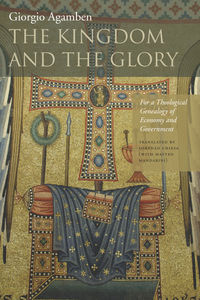
For years now, one of Giorgio Agamben’s major concerns has been the fracture that lies at the heart of modern humanity (i.e. humanity’s sense of sovereignty). This is something he has described in a variety of contexts as that which divides the experience of something from one’s knowledge of it (cf. his Infancy and History). Due to such a fracture, we are no longer able to experience life as we ought to. The task of poetry (as it deals with our experiences) is subsequently forever divided from that of philosophy (that which deals with our knowledge). Such divisions, I would add, have since become the preeminent focus of Agamben’s work, taking him on a quest against all forms of representation that would sever the ‘thing itself’ from its image. These thoughts, moreover, have taken him toward an inspection of similar divisions said to lie at the base of our perceptions of the divine (i.e. God’s sovereignty). […]
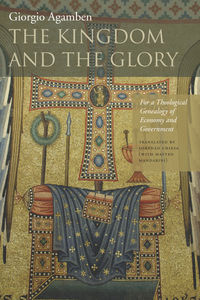
The Kingdom and the Glory: For a Theological Genealogy of Economy and Government, which continues Agamben’s interest in the history of sovereignty and the exception, brings the discourse of theology to the forefront of questions about the nature of modern political economy and government. Agamben’s claim is that theology has left its indelible signature on and therefore deeply animates modern life. But how? […]
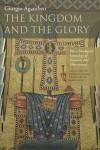
The field of political theology has not yet been rigorously defined. It is more a field of affinities than a clearly delineated disciplinary space—a kind of “zone of indistinction” between theology and political theory where the terms of debate are still very much up for grabs. Even as the range and shape of political theology as a field of inquiry remain somewhat inchoate, however, there are points of reference that already seem more or less obvious or obligatory. The work of Giorgio Agamben is surely one of them, a status that The Kingdom and the Glory will just as surely reinforce. […]
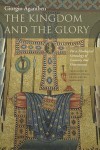
Six months or so after Lehman Brothers disappeared, and two weeks after the Dow Jones hit a twelve-year low, the creators of South Park ran an episode called Margaritaville, the primary storyline of which recounted the failed attempt by one of the boys to return the eponymous blender that his idiot, moralizing father had bought. In a gleefully sloppy primer on the financial crisis, Stan follows the increasingly inscrutable chain of capital from the profligate consumers, to shady third-party financiers, to the securities bundlers of Wall Street, and ultimately, to the public sector ex post facto debt assumers. At the heart of financial darkness, Stan’s odyssey takes him to the Treasury Department where a tribunal of economists determines the value of his margarita maker to be ninety trillion dollars, a calculation determined, it is subsequently revealed, through a divining process involving men in powdered wigs, a kazoo, and a decapitated yet still ambulatory chicken tossed onto a wheel-of-fortune style game board labeled with a range of monetary, fiscal, political maneuvers: Socialize/ Let Fail/ Coup d’etat/ Bailout!
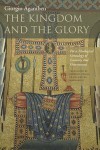
As the humanities have rediscovered religion, new sorts of questions are being asked about religion and politics. Religion is no longer imagined as a check box, as the social sciences would like to see it: something you have or don’t, something that comes in one of several flavors of belief. Now that religion is not only about belief but about practices and ideas, with histories, intertwined with other practices and ideas, the intersection of religion and politics is no longer a point, but a varied terrain with multiple dimensions. […]